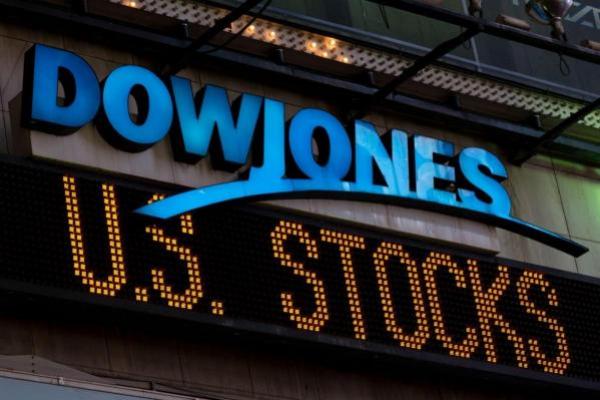The Dow Jones Industrial Average (DJIA), often called the Dow Jones or simply the Dow, is one of the most well-known stock market indices in the world.
For over a century, it has served as a trusted barometer of the U.S. economy, offering investors, analysts, and everyday people a snapshot of market health. But what exactly is the Dow Jones, and why does it matter? Let’s break it down.
What is the Dow Jones Industrial Average?
The Dow Jones is a price-weighted stock market index comprising 30 major U.S. companies across a variety of industries.
Created in 1896 by Charles Dow, a journalist, and Edward Jones, a statistician, the index was initially designed to track the industrial sector’s performance.
Over time, it has evolved to include a broader representation of the economy, featuring companies from technology, healthcare, finance, and consumer goods sectors.
Some of the most recognizable companies in the Dow today include Apple, Microsoft, Coca-Cola, Boeing, and Goldman Sachs.
How is the Dow Calculated?
Unlike other indices like the S&P 500, which is weighted by market capitalization, the Dow uses a price-weighted methodology.
This means that a stock with a higher price has a greater influence on the index’s movements than one with a lower price, regardless of the company’s size or market value.
To calculate the Dow:
- Add up the stock prices of all 30 companies in the index.
- Divide the total by the “Dow Divisor,” a figure adjusted over time to account for stock splits, dividends, and other changes.
This approach has been criticized for overemphasizing companies with higher stock prices, but it remains a simple and widely recognized measure of market performance.
Who Owns the Dow Jones?
The Dow Jones Industrial Average is managed by S&P Dow Jones Indices, a joint venture primarily owned by S&P Global. S&P Dow Jones Indices also oversees other major indices, such as the S&P 500. It’s important to note that the Dow Jones Industrial Average itself is distinct from Dow Jones & Company, a separate entity owned by News Corp, which publishes The Wall Street Journal.
Why Does the Dow Jones Matter?
The Dow is more than just a number; it’s a symbol of market sentiment and a tool for understanding the economy. Here’s why it matters:
- Market Indicator: The Dow’s movements reflect investor confidence. A rising Dow typically signals optimism, while a falling Dow may indicate concerns about the economy.
- Historical Benchmark: Since it’s been around for over 125 years, the Dow offers valuable historical data for analyzing long-term market trends.
- Global Influence: The Dow’s performance is closely watched worldwide, influencing financial markets and economic policies.
- Media Representation: The index is a staple in financial reporting, providing a quick and accessible way to gauge the day’s market performance.
Where Will the Dow Jones Be in 2025?
Predicting the Dow Jones’s future is challenging, as its value depends on a myriad of factors, including economic conditions, corporate earnings, and geopolitical events.
However, many analysts believe that by 2025, the index will likely continue its long-term upward trend, assuming steady economic growth and technological innovation.
Historical data shows that despite occasional downturns, the Dow has a strong track record of recovering and achieving new highs over time.
Criticisms and Limitations
While the Dow Jones is iconic, it has its drawbacks:
- Limited Scope: It tracks only 30 companies, which is a small fraction of the thousands of publicly traded firms in the U.S.
- Price-Weighted Bias: Higher-priced stocks disproportionately impact the index, which may not accurately reflect the overall market.
- Sector Gaps: Some industries, such as small-cap technology or renewable energy, are underrepresented.
For a broader view of the market, indices like the S&P 500 or the Nasdaq Composite may be more comprehensive.
Who Should Follow the Dow?
The Dow Jones is a useful tool for a wide range of people:
- Casual Investors: It offers a quick snapshot of market health.
- Economists: The index provides insights into market trends and economic conditions.
- Traders and Analysts: The Dow’s movements help gauge sentiment and guide investment decisions.
Conclusion: The Dow Jones in Perspective
The Dow Jones Industrial Average is much more than a list of stock prices; it’s a reflection of over a century of market evolution.
While it may not be perfect, its significance as a financial benchmark is undeniable. Whether you’re a seasoned investor or just starting, understanding the Dow is an essential step in navigating the world of investing.
As we look ahead to 2025, the Dow’s trajectory will depend on how companies adapt to changing economic and market conditions. Regardless of where the index stands, its legacy as a symbol of financial growth and resilience will continue.
Also Read
Forex Factory: Your ultimate guide to trading tools, market insights, and community support
An in-depth look at Alibaba (BABA) Stock: Is it a good buy right now?

